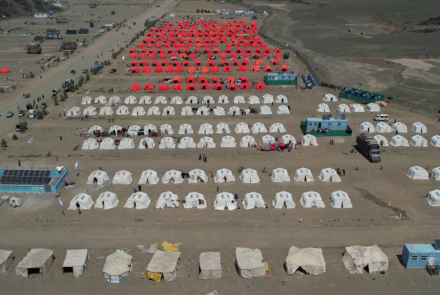In nearly one month, around 12,000 Afghan families have been deported from Pakistan through the Torkham crossing.
Local officials in Nangarhar say that among those deported are individuals who possessed all the necessary legal documents.
Bakht Jamal Gowhar, head of migrant transfers at Torkham, said: “About 12,000 families have arrived, totaling around 70,000 individuals. Among them are both documented and undocumented people. Families with documents have been referred to the United Nations High Commissioner for Refugees (UNHCR), while undocumented families have been referred to the International Organization for Migration (IOM). The Islamic Emirate has supported all these families by providing transportation and offering assistance.”
Meanwhile, the deported families, besides complaining about mistreatment by the Pakistani police, also report that some of their family members, dozens of livestock, and other belongings remain in Pakistan.
Abdul Baqi, one of the deportees, said: “My four daughters were born in Pakistan, and I have three sons. When the police arrived, they asked for my ID card. I said it was a citizenship card. They forced all my children to stand up. I lost my harvest worth one million Pakistani rupees, along with 18 sheep, potatoes, and other crops.”
The harsh treatment by Pakistani police is another major grievance voiced by deported migrants.
Malook, another deportee, said: “I had 125 sheep, all left behind. My tractors also remained there. I received nothing back. The women in my family were with me, and they are now settled in Kohat.”
Mohammad Islam, another deportee, said: “At 1:25 AM, they attacked us. They also took ten thousand rupees from me. The next day, we were deported, even though we had our migration cards with us.”
This situation unfolds as, a few days ago, Pakistan’s Interior Minister ordered Afghan migrants holding temporary residence cards to leave the country by the end of June this year.

